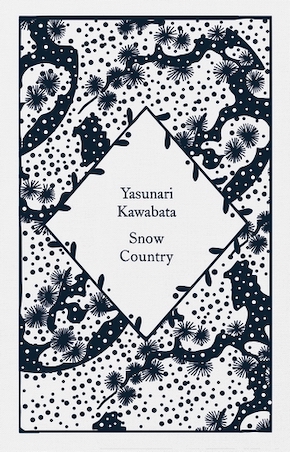Escape from Tokyo
by Nick Bradley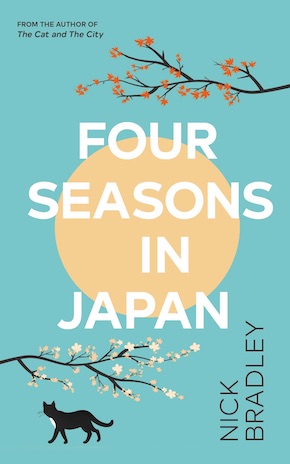
I have always wanted to write a novel set in rural Japan. The first place I lived when I moved there was a tiny coastal town in Hiroshima prefecture. Once a week, after work I would go to a battered old community centre in the town of Onomichi and have a one-on-one lesson with my very patient and long-suffering volunteer teacher of Japanese. I would take train journeys along the coast, looking out at the peaceful Seto Inland Sea, admiring the scenery that changed so drastically throughout the seasons.
I loved my life in rural Hiroshima prefecture, so much so that I struggled to write about it in fiction. Good fiction requires conflict, and how can a happy place produce conflict? Later in life I moved to Tokyo to work, and living there was a harder prospect – I found it full of loneliness, pain and isolation – and this is probably why I found myself gravitating towards it as a setting for my debut novel The Cat and The City.
While rewatching Ozu’s 1954 film Tokyo Story, I was struck by the idea of the parents (from Onomichi) going to see their children in Tokyo, and it got me thinking about the simple conflict that occurs between generations and within families. After reading Turgenev’s Fathers and Sons the idea became even more solid in my mind – I would write about a young man from Tokyo who moves down to Onomichi, in order to explore familial intergenerational conflict, and thereby explore and introduce the town to a non-Japanese readership. I realised that I really could craft a novel about the different wants of people in a supposedly ‘quiet’ place, and that I could celebrate Onomichi (a place so important to me) in doing so.
And so, in this article I’d like to explore books, films and music that have not only inspired my own writing, but celebrate the idea of fleeing the capital in search of a different kind of Japan than just Tokyo has to offer.
—
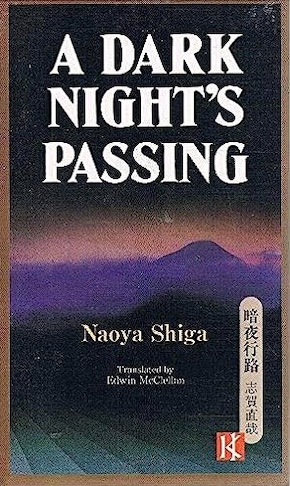
A Dark Night’s Passing by Naoya Shiga (1921)
While researching the town of Onomichi, the very first thing I did was look for books written by Japanese authors set there. I’m very glad I did, because it led me to this masterpiece, which quickly slotted into my top 10 books of all time. I love this novel, which slightly dabbles in autofiction (or does it?) through the genre of the Japanese ‘I-novel’, or shishosetsu. In it, the protagonist leaves the Tokyo literary scene to move down to Onomichi where he can work on his writing in peace.
69 by Ryu Murakami (1987)
I read this book many years ago when I first lived in Japan, and it is still one of my favourites by Ryu Murakami. Set in 1969, it follows the lives of a group of high-school students in Sasebo, near Nagasaki on the island of Kyushu. Driven to boredom by lack of a local music scene, they flout social conventions and try to put on a rock festival in their small town. Not as edgy as Ryu’s other work, this is a feelgood coming-of-age story, apparently drawing a lot from the author’s own formative years in Sasebo.
A Wild Sheep Chase by Haruki Murakami (1982)
Take a trip to Hokkaido in Haruki Murakami’s cool existentialist ‘detective’ novel, in which the main character flees Tokyo to search for meaning in Sapporo. Everyone knows Murakami, so I feel a little basic for listing this, but then again he is a master of storytelling, and has brought me a lot of joy as a reader since I first discovered him all those years ago. This was his first book to be translated into English, but the third novel he wrote in Japanese. For a fun insight into how Murakami got his first big break in the US, I’d recommend David Karashima’s excellent book: Who We’re Reading When We’re Reading Murakami (2020).
Snow Country by Yasunari Kawabata (1948)
Kawabata’s masterpiece about a man from the city who has an affair with an onsen geisha in the snowy countryside of Yuzawa in Niigata prefecture, on Japan’s Honshu main island. The book is beautiful, fleeting, poetic and deeply sad. I’ve read the novel a few times in my life now, at different stages, and each time it seems to say something new to me. This was the book that shot Kawabata to international fame, and landed him the Nobel Prize. It truly is perfect, and the ending scene will always stay with me.
Botchan by Natsume Sōseki (1906)
My own work pays homage to all of Natsume Sōseki’s, but in particular his novel Botchan remains a lovable classic for me about escaping the capital. A young teacher with anger issues gets sent down from Tokyo to teach in a school in Matsuyama on the island of Shikoku. Thus begins his personal war with the locals. If you make it to Matsuyama, you can go to Dogo Onsen, which was made famous by this popular classic book, and is also one of the inspirations for the Japanese inn in Spirited Away (2001).
An offbeat story about an uptight Tokyo lady who takes a vacation on a small island… Quirky, slow-paced and engrossing – a love letter to slow rural Japanese life.”
Megane (2007) dir. Naoko Ogigami
A film that’s always stayed with me. An offbeat story about an uptight Tokyo lady who takes a vacation on a small island off the coast of Kagoshima. At first, she finds the locals strange and difficult to understand, but over time she learns to relax and learn how to take it easy and enjoy the present moment. Quirky, slow-paced and engrossing – a love letter to slow rural Japanese life.
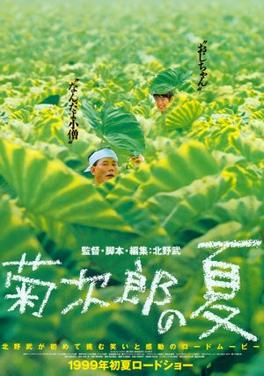
Kikujiro (1999) dir. Takeshi Kitano
A classic intergenerational road movie – starring, and written and directed by Takeshi ‘Beat’ Kitano – Kikujiro tells the story of an unlikely friendship between an older man and a young boy as they hit the road in search of the boy’s mother one summer. Light-hearted, poignant, exploring ideas of alienation and inclusion in Japanese society, it also has a beautiful score by Joe Hisaishi (of Ghibli fame).
I Wish (2011) dir. Hirokazu Koreeda
My absolute favouritedirector working right now – Hirokazu Koreeda, already internationally famous for films like Shoplifters, Nobody Knows and Like Father, Like Son. This is a lesser-known film by him about two brothers who grew up in separate households in different cities on the opposite sides of Kyushu island – Kagoshima on the southern tip, and Fukuoka in the north. A touching and moving story about brotherhood, told very much from the kids’ perspectives.
The Twilight Samurai (2002) dir. Yoji Yamada
A historical period drama, set in pre-Meiji (mid-19th Century) Japan, in a rural part of Akita prefecture in the Tohoku region in the north of Honshu. The story follows the lives of an impoverished samurai, Seibei, and his two daughters. Following the death of his wife, Seibei does his best to be a good father to his daughters and look after his ageing mother suffering from dementia, despite all the setbacks he faces in life. A beautiful film.
Tha Blue Herb
Tha Blue Herb are a hip-hop group from Sapporo city in Hokkaido (the northernmost island) who actively promote the music scene of their hometown as a rival to Tokyo. While I was backpacking through Southeast Asia many years ago, this was the group Japanese friends I made along the way recommended most strongly. Their music is now on Spotify, and I would highly recommend. Listen to them reinterpret Kenji Miyazawa’s poem (which I used as the epigraph of Four Seasons in Japan) in their song ‘Ame Ni Mo Makezu’. Very cool! (metcha kakkoii!)
—
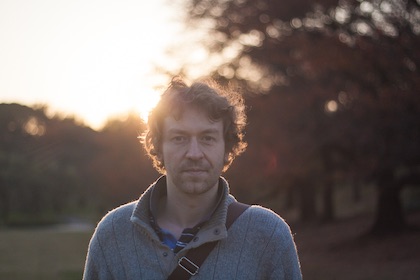
Nick Bradley holds a PhD from UEA focusing on the figure of the cat in Japanese literature. He lived in Japan for many years where he worked as a translator, and currently teaches on the Creative Writing master’s programme at the University of Cambridge. His debut novel, The Cat and The City, was published in 2020. Four Seasons in Japan is published by Doubleday/Transworld Digital in hardback, eBook and audio download.
Read more
nickbradleywriter.com
@nasubijutsu
@DoubledayUK

